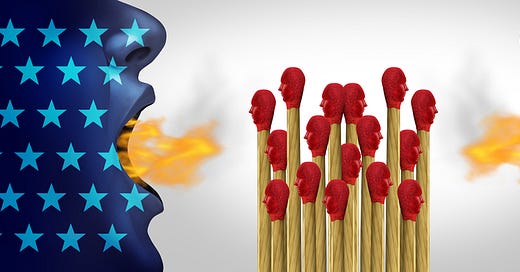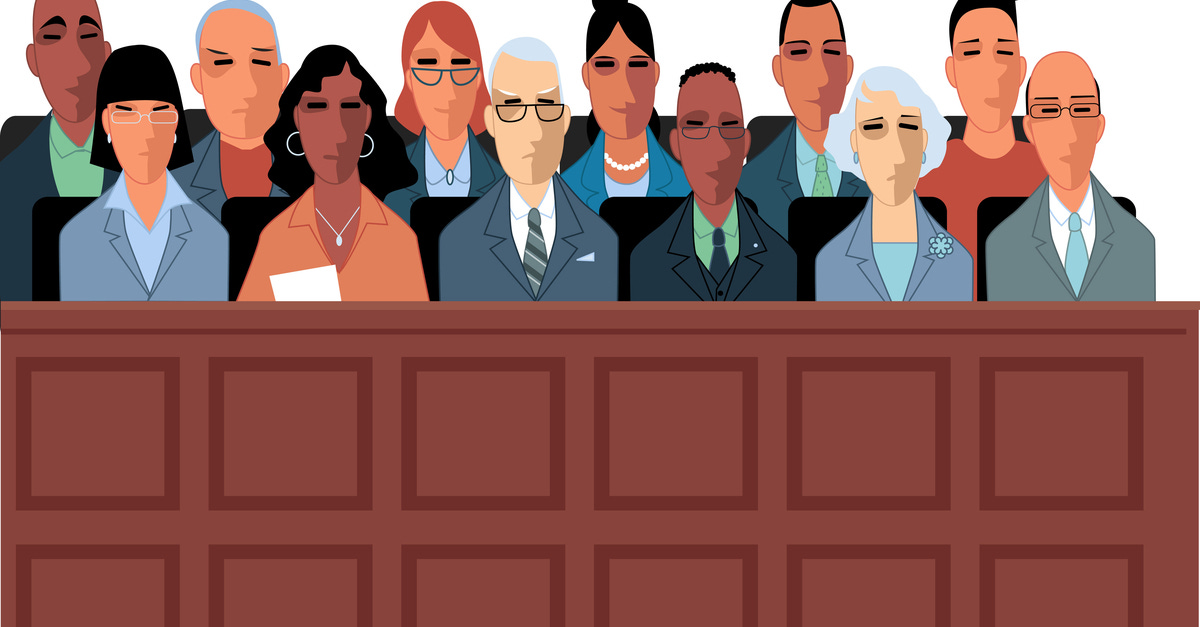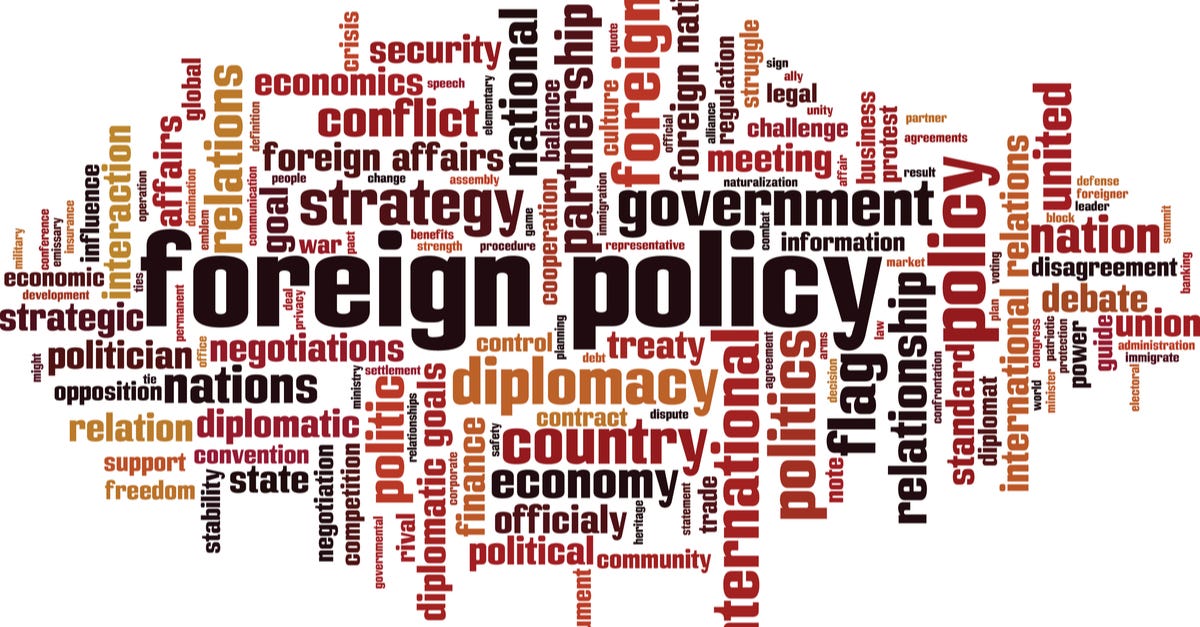E-Pluribus | December 7, 2021
In defense of juries, rebooting foreign policy post-Afghanistan, and a caution regarding culture-issue journalism.
A round up of the latest and best writing and musings on the rise of illiberalism in the public discourse:
Thomas Hogan: The Power of Regular People
The justice system in the United States is under constant assault for what are seen by many as systemic faults that require a complete overhaul, even calling into question some fundamental Constitutional principles. At City Journal, Thomas Hogan points to the recent trials involving Kyle Rittenhouse and Ahmaud Arbery to defend one aspect of that system, trial by jury. Not only is it fundamental to a government of, by and for the people, but Hogan makes the case that, despite its utilization of non-expert, ordinary people, the jury system can truly help deliver justice.
Juries exist in America as a bulwark against the potential tyranny of a single judge or the uninformed judgment of the mob. Drawn from the ordinary citizenry, they often reflect the commonsense views of the broad American middle. The jurors in the Rittenhouse trial live in the Kenosha neighborhoods that were subject to the protests from out-of-town agitators. They shop at the stores that were looted. They know what they saw in the streets of their hometown.
[…]
America has seen these stubborn juries before. In 1987, a Manhattan jury acquitted Bernie Goetz of attempted murder for shooting four black males who tried to rob him on a subway, with Goetz claiming self-defense. In 2013, a Florida jury acquitted George Zimmerman of murder after he claimed self-defense in the shooting of Trayvon Martin, where Martin appeared to be beating Zimmerman.
Stubborn juries don’t move in one direction. A week after the Rittenhouse verdict, a Brunswick, Georgia, jury convicted Travis McMichael, Greg McMichael, and William Bryan in the murder of Ahmaud Arbery. The defendants in the Georgia case also claimed self-defense. But that jury saw three men hunting down an unarmed man who was alone, before one of the armed defendants got into a physical altercation and shot Arbery. Interestingly, while the media sought to make it look like Arbery was just out for a jog, the prosecution did not fall into the trap of presenting a false narrative. It conceded that Arbery might not have belonged at the property he entered, but argued that was no justification for killing him.
The Georgia jury had to sort through video evidence, conflicting versions of events, one of the defendants taking the stand, and legal issues related to self-defense and the citizen’s-arrest law. It also had to apply the felony-murder rule to the two defendants who did not fire the gun. The prosecution team presented a careful and honest case. The jury reviewed the law and the facts, then convicted the defendants—though they made some careful distinctions between the level of culpability of the three defendants based on their respective roles in the killing.
Read it all here.
Michael Ignatieff: The Collapse of Liberal Internationalism
The US’s recent final and complete withdrawal from Afghanistan has once again raised the question of how best to keep the world safe from authoritarianism and illiberalism short of risking American lives militarily overseas. At Persuasion, Michael Ignatieff reviews what has gone wrong (and right) in recent decades and how that should influence the debate on how foreign policy should be conducted in a modern but still dangerous world.
So if realism provides no clear solution, where should liberal foreign policy go from here? First, there should be no abandonment of our fundamental principles. A liberal foreign policy should certainly forswear intervention and military adventurism in the name of caution. But a policy that says and does nothing about human rights abuses and the global democratic recession will allow authoritarian regimes to spread until democracy becomes so isolated it can no longer defend itself. A day does not pass without Vladimir Putin, Xi Jinping and minor players like Viktor Orbán trumpeting the decadence of the liberal democratic model and predicting the inevitable triumph of the authoritarian way. When they declare the superiority of regimes built on intimidation, manipulation and fear, it’s simple prudence on our part to defend governments based on consent of the governed.
Fighting against the rising tide of authoritarianism is more than just principle. In fact, it’s common sense. We can curb hubris and repent of the tacit moral imperialism of many liberal impulses to set the world to rights, without forgetting that how a regime treats its own people is a predictor of the threat it poses internationally. We worry about China not just because it is powerful, but because it is savage towards its minorities, contemptuous of the democratic traditions of Hongkongers and so afraid of its own people that it crushes any whisper of dissent. The realist injunction that we should ignore this behavior because it is not our business to let moral concerns infest our foreign policy ignores the fact that how a state behaves at home is a sign of its threat abroad.
Rebuilding domestic support for any liberal foreign policy will be difficult. A continental republic, protected by oceans to the east and west, and friendly neighbors to the north and south, has often been isolationist by instinct and internationalist by reluctant choice. The last time an American electorate truly embraced international engagement was between 1942 and 1948, a period when Americans faced a mortal threat and knew that their economic and military power would be key to victory. As American hegemony slowly passes, persuading Americans to sustain their commitments abroad will be doubly hard. President Biden’s efforts to rebuild consensus through a “foreign policy for the middle class” is a good place to start. Persuading Americans to sustain a global alliance of democracies because it will help their pocketbooks and keep them safe is part of the rhetoric needed to rebuild faith in an outward-facing America. The deeper challenge is to habituate Americans to the idea that though the power of the U.S. has declined, it remains substantial enough to lead its friends and deter its foes.
Read it all.
Alex Nowrasteh: The Economics of Culture War Commentary
The Cato Institute’s Alex Nowrasteh spends much of his energy and time on deeply researched pieces on economics and immigration policy, but has taken to Arc Digital this week to write a cautionary essay about a trend in journalism he finds troubling: an overemphasis on cultural issues. Though the nature of our mission at Pluribus means many of the works we feature involves matters of opinion (but only the cream of the crop, of course!), Nowrasteh’s warnings are worth heeding, both by readers and writers of the vast number of items published each and every day.
Ditching the expertise requirement means that the cost for writers to produce cultural takes is small compared to other forms of writing, resulting in a huge increase in the supply of such pieces even more than the general increase in the supply of written work. Writing about science, economics, and politics usually requires expertise. Science journalism is scarce, and what does exist in that field is frequently bad because science is hard. There are some excellent science writers, but they are the exception.
It’s also hard to write an economics column without knowing well the basics of the supply-and-demand model or other economic theories. Political writing requires knowing something about the topic—like what the Senate is, and how a bill becomes a law.
Writing about cultural issues requires less knowledge than those topics, and any requisite understanding can usually be acquired with a small amount of frantic googling. Publishing on science, economics, and politics, on the other hand, usually exposes the writer to making an error and the resulting embarrassment. This speaks to why the cost of writing about those topics is higher.
A writer in one of these fields has a high chance of making a factual error that will force him to make an embarrassing and costly correction, one that will reduce his reputation and, hence, future readership. That chance diminishes investment in expertise and production.
Read the whole thing.
Around Twitter
Via Mark Perry, the explosive growth of “diversity, equity and inclusion” departments at universities (in this case, Ohio State):


Some highlights from a long thread from Greg Lukianoff of the Foundation for Individual Rights in Education on free speech and Yale. Click through for the whole thing:





Nicholas Christakis of Yale chimes in:


Finally, via the Foundation Against Intolerance & Racism, a parting thought on debate and divisions in America from the recently departed Bob Dole:










